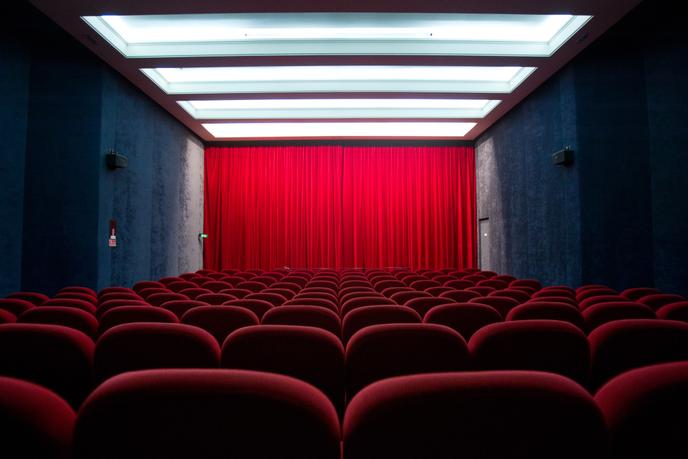Glyndebourne to stage live opera outdoors in August
Glyndebourne Opera House in East Sussex is planning to present live opera outdoors in August, seven weeks on from cancelling its entire summer season.
Mesdames de la Halle (1858), Jacques Offenbach’s one-act opera about vegetable sellers in Paris, will be staged with 12 singers but no chorus.
Props and costumes will come from past operas, while the number of musicians will be reduced from 40 to 13.
The audience will be limited to 200 people, with tickets costing £100 each.
Audience members will be seated outside in accordance with social distancing guidelines, while performances will be cancelled on the event of bad weather.
“Experiencing live music and theatre, together, in an inspiring environment is what Glyndebourne is all about,” said artistic director Stephen Langridge.
“We are fortunate in having plenty of outside space available to us, and with a little imagination, we saw exciting musical and theatrical opportunities for performance in the gardens.”

Rheinland-Pfalz: Lockerungen für Kulturveranstaltungen
Die Landesregierung von Rheinland-Pfalz hat die geltenden Sicherheitsmaßnahmen zum Coronavirus gelockert. Bei Veranstaltungen im Freien sind der 10. Corona-Bekämpfungsverordnung zufolge nun bis zu 350 Personen erlaubt. Wichtig ist dabei das Einhalten des Sicherheitsabstands, außerdem sind Organisatoren dazu verpflichtet, die Kontaktdaten des Publikums zu erfassen. In Warteschlangen, unter anderem also beim Einlass zu Veranstaltungen, ist zusätzlich das Tragen eines Mund-Nasen-Schutzes Pflicht.
In geschlossenen Räumen sind fortan 150 Personen erlaubt, hier gilt die Maskenpflicht auch außerhalb von Schlangen, jedoch nicht am Platz. Sicherheitsabstände und Kontakterfassung sind auch bei Veranstaltungen in Räumen vorgeschrieben. Alle Veranstaltungen sind zusätzlich auf den Zeitraum zwischen 6 Uhr morgens und Mitternacht begrenzt. Erst vergangene Woche wurde in Rheinland-Pfalz sowie weiteren Bundesländern bereits die Proben- und Auftrittssituation von Chören angeglichen (klassik.com berichtete).

Rhineland-Palatinate: Relaxation for cultural events
The state government of Rhineland-Palatinate has relaxed the security measures in place for coronavirus. According to the 10th Corona Control Ordinance, up to 350 people are now allowed at outdoor events. It is important to maintain a safe distance, and organizers are also required to record the contact details of the audience. In queues, among other things when entering events, the wearing of a mouth and nose protector is also mandatory.
From now on, 150 persons are allowed in closed rooms, here the mask obligation also applies outside of queues, but not at the venue. Safety distances and contact detection are also mandatory for events in rooms. All events are additionally limited to the period between 6 a.m. and midnight. Only last week the rehearsal and performance situation of choirs in Rhineland-Palatinate and other federal states has already been adjusted (klassik.com reported).
La limite de la demi-jauge est levée dans les salles de cinéma et de spectacle
Le ministre de la culture, Franck Riester, a cependant précisé que les spectateurs n’appartenant pas au même groupe devront toujours être séparés par un siège.
C’est presque un retour à la normale. Les salles de cinéma et de spectacle peuvent désormais aller au-delà de la demi-jauge préconisée en raison du coronavirus, mais les spectateurs seront toujours séparés par un siège s’ils n’appartiennent pas au même groupe, a annoncé dimanche le ministre de la culture, Franck Riester.
« Il y a eu un conseil de défense vendredi qui est allé un peu plus loin que ce qu’on imaginait en termes d’organisation des salles de cinéma comme de spectacle, c’est-à-dire qu’il n’y a plus de limitation de 50 % de jauge », a indiqué le ministre sur Europe 1.
« On peut s’asseoir ensemble quand on est dans le même groupe social, c’est-à-dire si on est des amis et on vient au cinéma ou au théâtre ensemble », a-t-il ajouté. « En revanche, on laisse un siège d’écart si on ne connaît pas les gens assis à côté et on peut retirer le masque une fois qu’on est assis. On porte le masque pour se rendre à sa place parce qu’évidemment on peut croiser des gens », a précisé le ministre de la culture.
[…]
Pour les théâtres, ces annonces ne signifient pas pour autant une reprise immédiate des spectacles. Depuis l’annonce de la réouverture des théâtres en France le 2 juin – à l’exception de l’Ile-de-France, où la date avait été repoussée au 15 –, très peu d’établissements ont pu redémarrer, en réalité. Juin marque en effet traditionnellement la fin de la saison théâtrale et le début des festivals d’été, or ces derniers ont en majorité été annulés.

The half gauge limit is lifted in cinemas and theatres
Culture Minister Franck Riester, however, made it clear that spectators who do not belong to the same group must always be separated by a seat.
This is almost a return to normal. Cinemas and theatres can now go beyond the recommended half-gauge because of the coronavirus, but spectators will always be separated by a seat if they do not belong to the same group, announced Culture Minister Franck Riester on Sunday.
“There was a defence council on Friday which went a little further than what was imagined in terms of the organisation of cinemas and shows, that is to say that there is no longer a 50% limit on the number of seats,” said the minister on Europe 1.
“We can sit together when we are in the same social group, i.e. if we are friends and come to the cinema or theatre together,” he added. “However, if you don’t know the people sitting next to you, you leave a seat aside and you can take off the mask once you’re sitting down. You wear the mask to get to your seat because of course you may run into people,” said the Minister of Culture.
[…]
For theatres, these announcements do not mean an immediate resumption of performances. Since the announcement of the reopening of theatres in France on 2 June – with the exception of the Ile-de-France region, where the date had been pushed back to 15 – very few establishments have actually been able to restart. Indeed, June traditionally marks the end of the theatre season and the beginning of the summer festivals, but most of these have been cancelled.
Carnegie Hall and Lincoln Center Cancel Fall Performances
All of New York City’s major classical music institutions will be closed at least until the end of 2020.
With coronavirus cases sharply down in New York City, residents are preparing to return to dining outdoors and visiting hair salons as soon as next week. But as reopening continues this summer and fall, the city’s major classical music institutions will be silent.
On Thursday, Carnegie Hall and Lincoln Center announced they would cancel their fall seasons. Coming on the heels of similar announcements from the Metropolitan Opera and the New York Philharmonic, the decisions make clear that there will be few, if any, large-scale performances before 2021 in one of the world’s musical centers.
“This was a very difficult decision for us to make,” Clive Gillinson, Carnegie’s executive and artistic director, said in a statement. “However, the safety of Carnegie Hall’s artists, audiences and staff is paramount.”
Lincoln Center — which presents performances and also acts as a landlord to the Met, the Philharmonic and other organizations — anticipates over $1.3 million in lost ticket revenue from the cancellation of fall events, Isabel Sinistore, a spokeswoman, said in an email.

 BACK
BACK